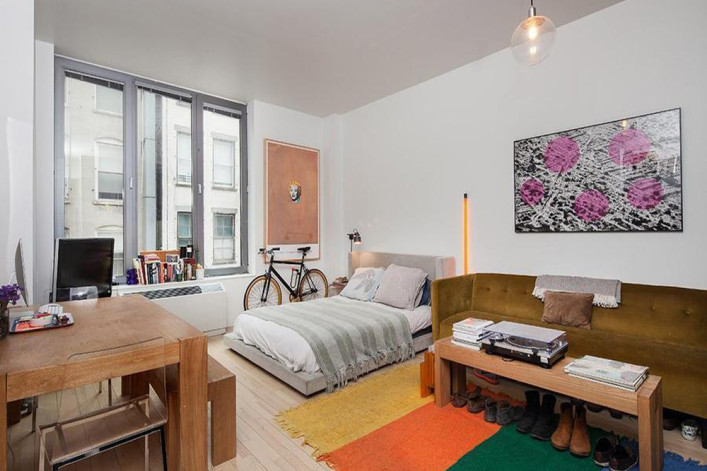Can I get kicked out of my co-op for living there part-time?

Q. My co-op doesn't allow pied-à-terres. I'm moving to L.A. next month and I'd like to keep my studio for occasional visits. Will they force me to sell it? Is that even legal?
A: Break out the flip flops and start tracking gas prices, because you're in the clear to move to L.A. While it’s fine for a co-op board to deny a buyer's application because they want to use an apartment as a pied-à-terre, it's within an owner's rights to live in a place part-time, our experts say.
“It would be extraordinary for a co-operative's governing documents to require a tenant-shareholder to reside in his or her apartment as a primary residence or to prohibit use of the apartment as a pied-a-terre,” says real estate attorney Steven Wagner of Wagner Berkow, adding that, as long as you’re not running afoul of other provisions in your proprietary lease and your maintenance charges are up to date, the co-op would not have grounds to evict you or force a sale.
“Proprietary leases only require that the space be used for residential purposes,” he adds. “Pied-à-terres satisfy that requirement.”
Indeed, adds real estate attorney Jeffrey Reich of Wolf Haldenstein Adler Freeman & Herz, "I have never seen a proprietary lease use provision in an unregulated co-operative"--meaning one that's not a Mitchell-Lama or other regulated apartment--"which would prohibit an owner from using his/her apartment as a pied-a-terre, and I would question the enforceability of any such provision."
You may be confusing part-time occupancy with short-term sublets, which have created quite a stir thanks to the popularity of sites like Airbnb. That kind of arrangement is considered “transient" use, not residential; they’re illegal in residential buildings and would violate most co-op proprietary leases, Wagner says.
"This could result in an eviction or a forced sale of the apartment owner," he adds.
If you’re still worried—and since every co-op is different—real estate broker Gordon Roberts of Warburg Realty recommends that you go “back to the real estate attorney who represented you on the purchase of the apartment, have them review your building's by-laws, and advise you accordingly.”
And be upfront with the board, since any lies could come back to hurt you, he says.
“Maybe write the board and tell them you're moving to L.A. but want to hold on to your apartment for at least two years to make sure the relocation will ‘stick’—because, let's face it, a lot of people move out to L.A., only to return to New York City with a lesson learned,” he says. “They might sympathize with that.”
Related posts:
I'm in the market for a pied-a-terre. What should I know?
BrickUnderground's pied-a-terre checklist: What to consider before buying a part-time place in NYC
Here are the 7 most likely reasons you'll get rejected by a co-op board
How to tell a friendly/liberal co-op board from a mile away
Trouble at home? Get your NYC apartment-dweller questions answered by an expert! Send us your questions.
See all Ask an Expert.






















